Here's how the cast of 'Oppenheimer' compares to the real-life people they're portraying
"Oppenheimer," the latest movie by the director Christopher Nolan, is set to hit theaters Friday.
The movie stars Cillian Murphy as J. Robert Oppenheimer and tells the story behind the atomic bomb.
Here's how Matt Damon, Robert Downey Jr., and more resemble the real-life characters they portray.
Cillian Murphy plays the father of the atomic bomb, J. Robert Oppenheimer.
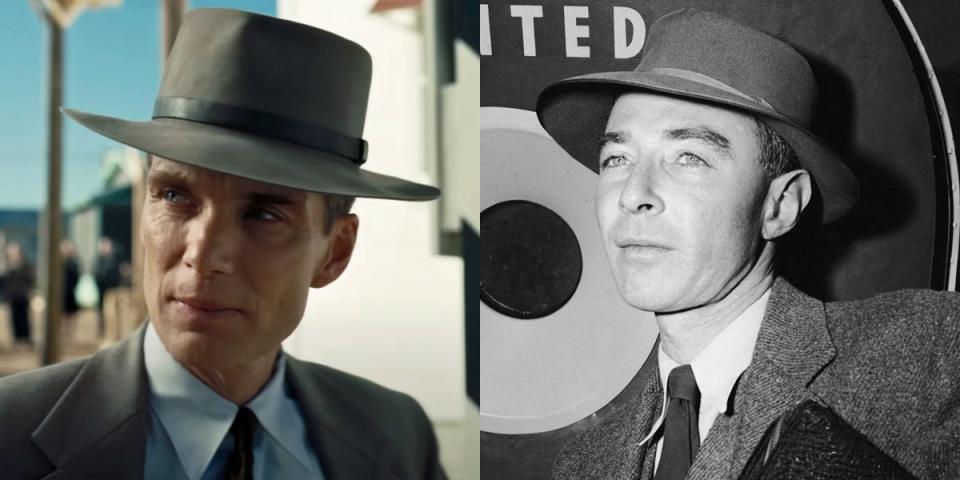
"Oppenheimer," the latest film directed by Christopher Nolan, is based on Martin J. Sherwin and Kai Bird's "American Prometheus: The Triumph and Tragedy of J. Robert Oppenheimer." The biographical thriller explores the Manhattan Project, the journey to developing the nuclear weapon, and Oppenheimer's legacy.
Two of the bombs he helped develop were dropped on Hiroshima and Nagasaki, and the bombs killed at least 200,000 people, according to the BBC.
Murphy consulted the physicist Kip Thorne and watched hours of footage of the theoretical physicist giving lectures and interviews in preparation for the role, according to production notes.
Emily Blunt stars as Oppenheimer's wife, Katherine "Kitty" Oppenheimer.
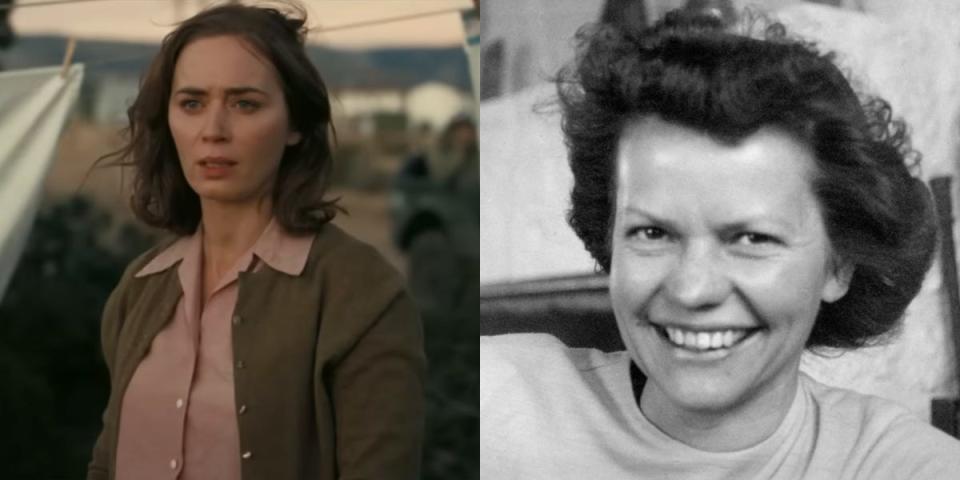
Katherine Puening was a botanist who married three times before she married Oppenheimer and moved to Los Alamos, New Mexico, with him for the Manhattan Project.
"She was a pretty monumental presence in his life as a confidant, and as a real scientific brain herself," Blunt told Total Film of her character in relation to Oppenheimer. "She was, you know, a very big personality. Not necessarily one to confirm to a housewife ideal of the time.
The couple had two children, Peter and Toni, together.
Dylan Arnold plays Oppenheimer's younger brother, Frank.
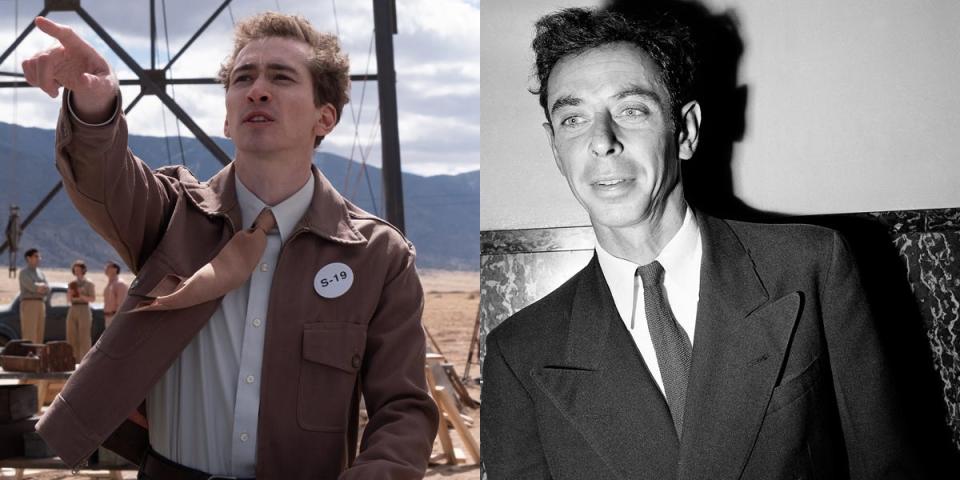
Robert Oppenheimer was a particle physicist who recruited Frank to perform research on the Manhattan Project.
In July 1945, he planned and worked on the first nuclear explosion, called the Trinity Bomb test.
Frank opened the Exploratorium, an interactive science museum, in San Francisco in 1969.
According to the production notes, Arnold prepared for his role by speaking with Frank Oppenheimer's son, Michael.
Tom Conti plays Albert Einstein, the famous theoretical physicist who didn't participate in the Manhattan Project but did get it off the ground.
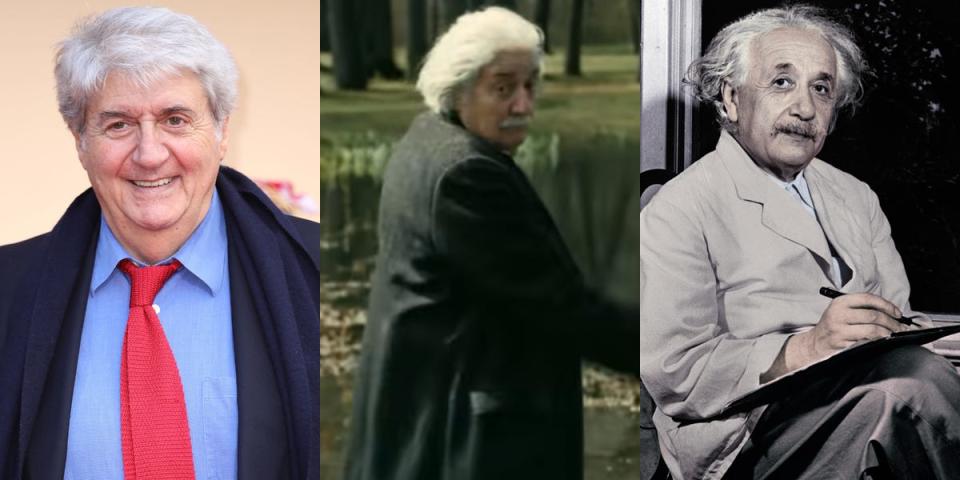
Einstein helped get the ball rolling on the Manhattan Project by cosigning a 1939 letter to President Roosevelt encouraging the US to begin research into atomic energy because Germany might be doing the same.
Einstein later told Newsweek after World War II that he never would've sent the letter if he had known Germany wasn't planning to develop an atomic bomb.
Matthew Modine plays Vannevar Bush, who helped get the Manhattan Project off the ground.
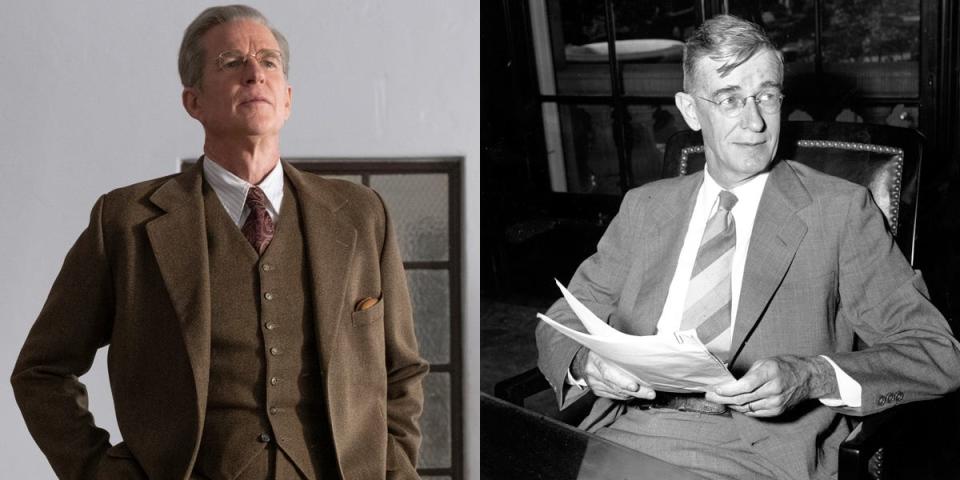
Bush, who was the head of the US Office of Scientific Research and Development during World War II, expressed concerns about other countries potentially developing an atomic bomb and was given approval by President Roosevelt to build a bomb.
Bush helped develop and recruit scientists for the Manhattan Project to beat the world to the discovery of the atomic bomb first.
Matthias Schweighöfer plays Werner Heisenberg, who was drafted to work on a rival atomic weapon for the Nazis during World War II.
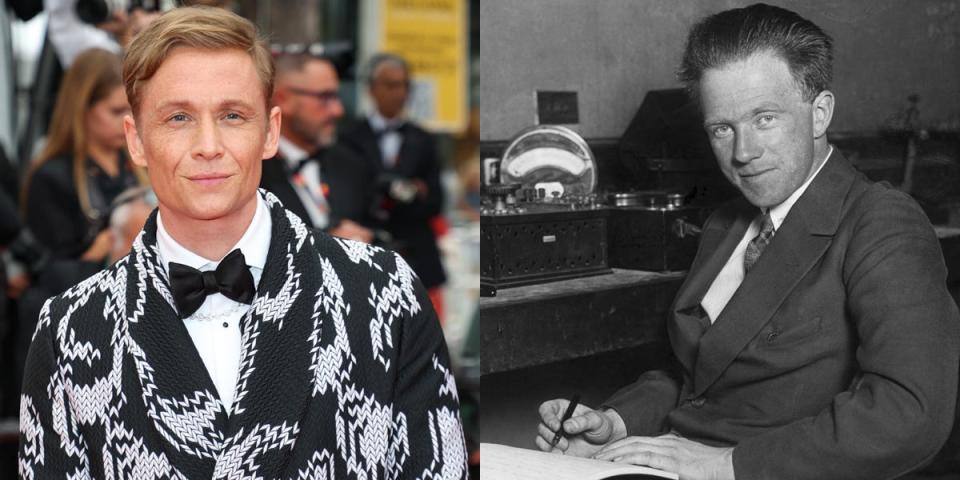
The German theoretical physicist was awarded the 1932 Nobel Prize in Physics for pioneering the creation of quantum mechanics, which helped lead to the creation of the atomic bomb.
The film shows Oppenheimer and his team racing against Heisenberg to develop an atomic bomb. However, the movie never shows any work from Heisenberg's team.
In reality, Heisenberg oversaw Germany's atomic-weapons program, but they never came close to developing a working bomb. Some believe German scientists quietly sabotaged the project.
Oppenheimer's team was led to believe they were in a race to deliver a potential weapon faster.
Matt Damon plays General Leslie Groves Jr., the director of the Manhattan Project.
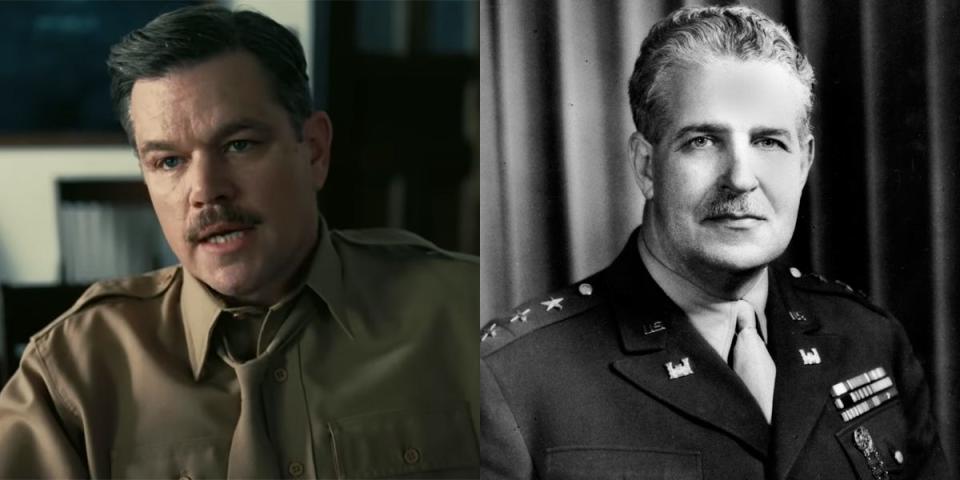
Groves was tasked with leading the Manhattan Project in September 1942. He selected Oppenheimer to lead a lab in Los Alamos.
He thought the creation of the atomic bomb would help bring World War II to an end.
Colonel Kenneth D. Nichols, an engineer on the Manhattan Project, described Groves as "extremely intelligent" but "the most egotistical man" he knew.
Benny Safdie portrays the father of the hydrogen bomb, Edward Teller.
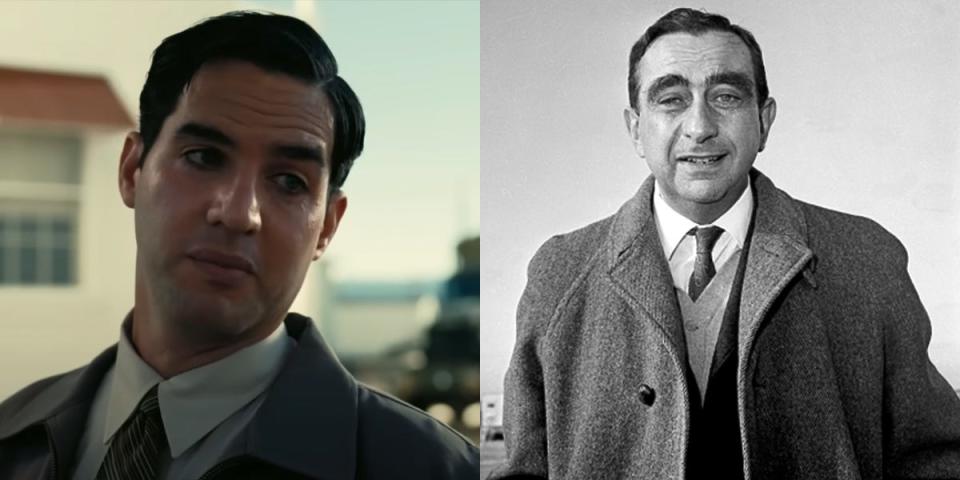
The theoretical physicist worked under Oppenheimer on the Manhattan Project, but he advocated for developing a hydrogen bomb, something Oppenheimer was staunchly against because of the destruction he believed it would create.
Teller later testified against Oppenheimer during his 1954 security hearing. He died in 2003 at the age of 95.
Josh Hartnett was cast as Ernest Lawrence, a physicist who was friends with Oppenheimer.
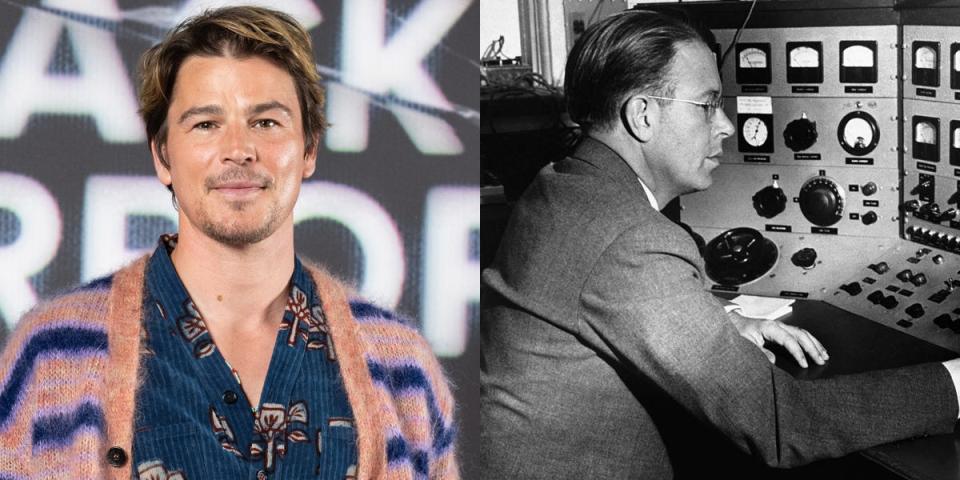
In addition to reading up on Lawrence, Hartnett sought inspiration to play the role from his great uncle, who's also a physicist, according to the production notes.
Lawrence won the Nobel Prize in Physics in 1939 for inventing the cyclotron, which was used during the Manhattan Project. His discovery of splitting the atom, nuclear fission, helped lead to the creation of the atomic bomb.
He was a proponent of creating the hydrogen bomb who helped beat the Soviets to its discovery. This put him at odds with Oppenheimer.
Kenneth Branagh plays Niels Bohr, a physicist who won the Nobel Prize in physics in 1922.
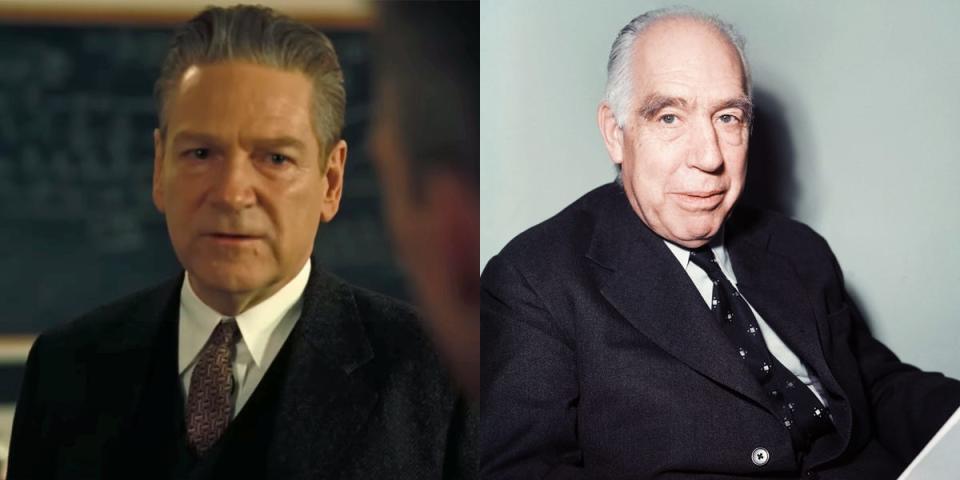
The Danish physicist began work on the Manhattan Project in London before coming to the United States to join the Los Alamos team as a consultant under the pseudonym Nicholas Baker.
According to production notes, Branagh said Nolan saw Bohr as having "an Obi-Wan-Kenobi relationship to Oppenheimer," speaking of the "Star Wars" Jedi as a mentor.
Gustaf Skarsgård plays Hans Bethe, a nuclear physicist who was also involved in the Manhattan Project.
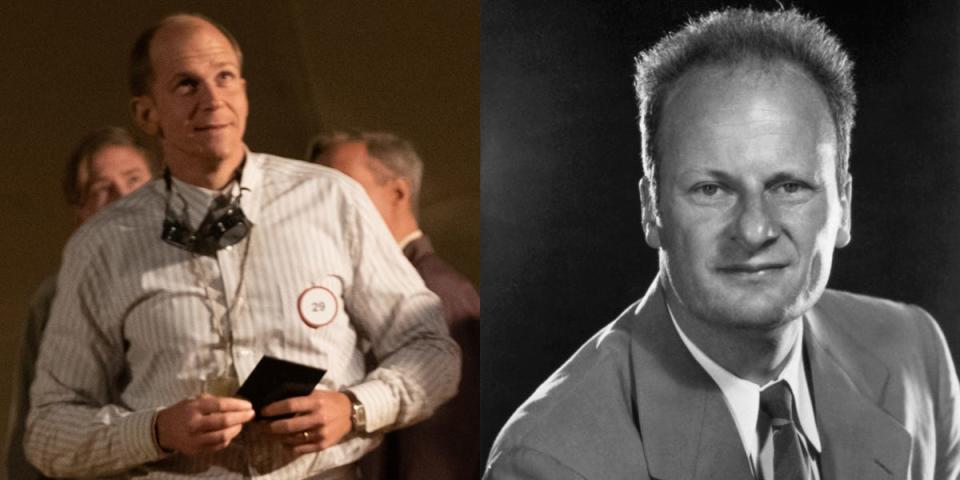
The nuclear physicist was selected by Oppenheimer to lead the theoretical division of the Manhattan Project. Bethe worked on the design for the bomb used in the July 1965 nuclear test, codenamed Trinity, and the one dropped on Nagasaki.
He later worked on the hydrogen bomb's development even though he was against it. Bethe won the Nobel Prize in physics in 1967.
David Krumholtz appears as Isidor Isaac Rabi, a physicist who declined to work on the Manhattan Project.
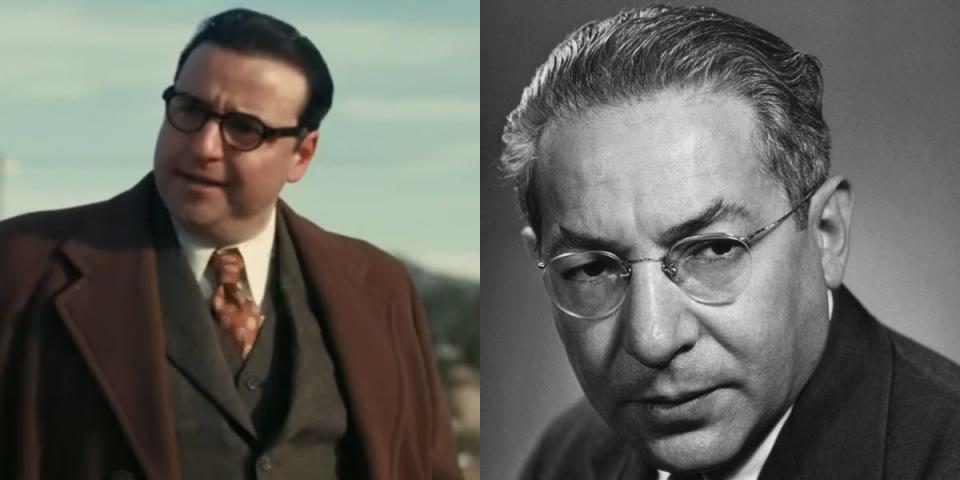
Rabi turned down working with his friend Oppenheimer at Los Alamos as a deputy director but offered his advice as a consultant. He was present when the Trinity nuclear test occurred.
He won the Nobel Prize in physics in 1944 and was among the scientists who opposed the hydrogen bomb.
Josh Peck plays the physicist Kenneth Bainbridge.
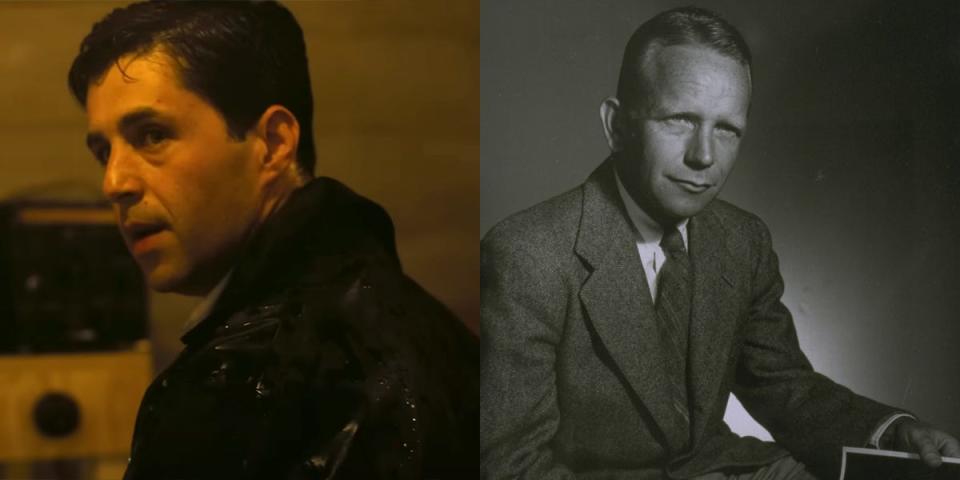
Ernest Lawrence recruited Bainbridge in 1940 to do early work on the Manhattan Project at the Massachusetts Institute of Technology.
In 1943, he joined the team at Los Alamos to work at the nuclear weapons lab, which was called "Project Y." He oversaw the 1945 Trinity nuclear test. Bainbridge is credited with saying the famous line, "Now we are all sons of bitches," after the test was considered a success.
Jack Quaid plays Richard P. Feynman, a professor who was one of the younger people to work on the Manhattan Project.
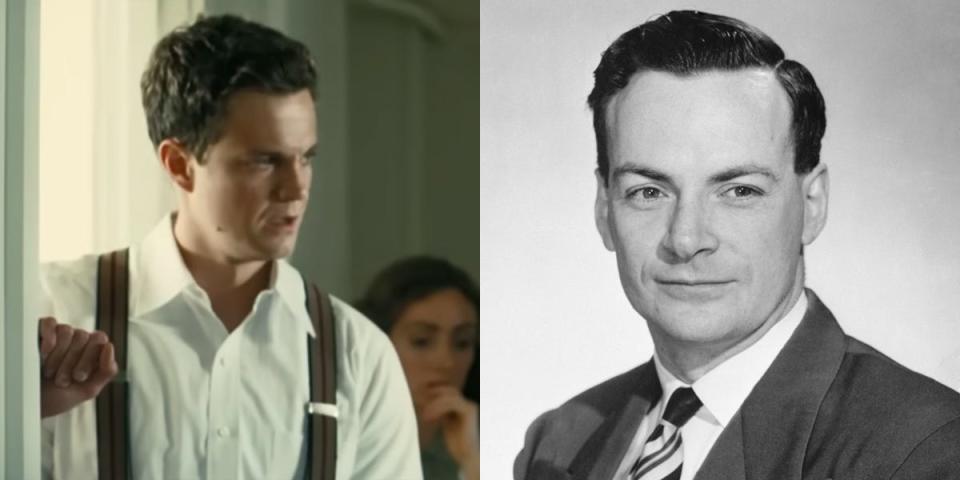
The theoretical physicist was recruited to work on the Manhattan Project with Hans Bethe's team when he was 24, before he even had a graduate degree.
According to the Atomic Heritage Foundation, when he later arrived at the Los Alamos location, he was "known for playfully challenging security." By this time, he had earned a degree.
Feynman was at the Trinity nuclear test in 1945 and won the Nobel Prize in 1965. Years later, he was part of the team who investigated the Challenger disaster.
Casey Affleck plays Boris Pash, a US military intelligence officer who interrogated anyone at the Manhattan Project who may have a connection to the Communist Party.
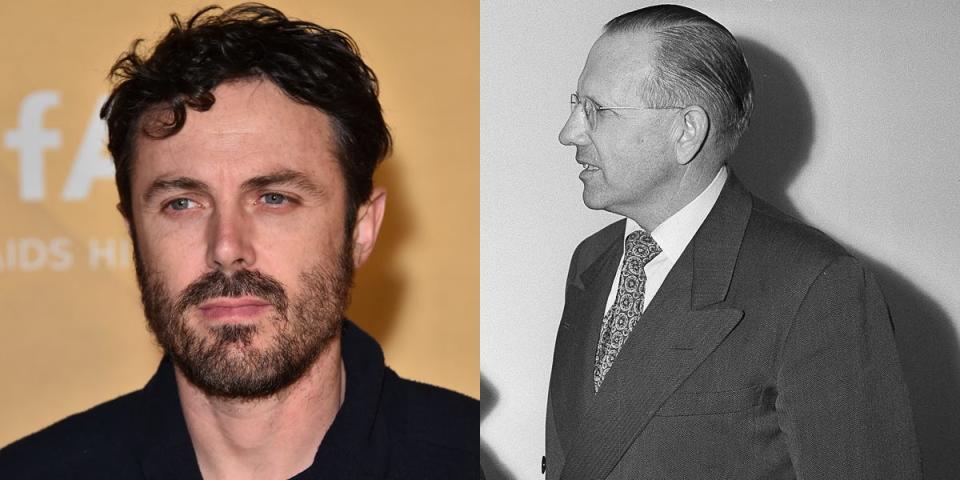
When the US suspected Soviet spies of stealing atomic research from the Manhattan Project, Pash, who was the chief of counterintelligence at the time, looked into security breaches. Oppenheimer was among those Pash interrogated.
According to "Manhattan: The Army and the Atomic Bomb," Pash concluded Oppenheimer "may still be connected with the Communist Party."
While he considered the possibility of replacing Oppenheimer, Pash recommended Oppenheimer continue working on the Manhattan Project as long as he was briefed on the Espionage Act, made aware that the government knew of his Communist "affiliations," and told they wouldn't tolerate any leaks of information.
As Groves deemed Oppenheimer necessary to the project, two counterintelligence bodyguards were assigned to Oppenheimer to keep watch on him, something Oppenheimer was supposed to be informed about.
Gary Oldman plays President Harry S. Truman in "Oppenheimer."
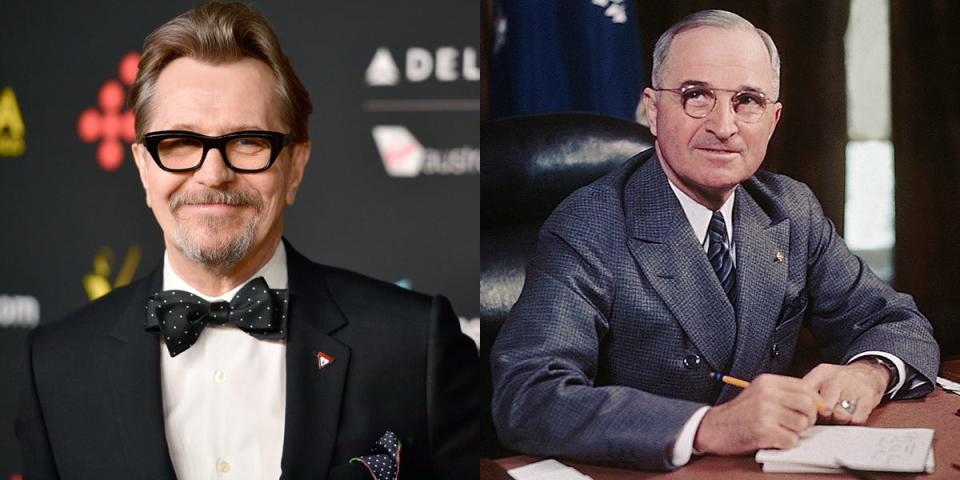
Oldman told the UK radio station TalkSport that he had "one scene" in the movie that was "page and a half" in the script.
Truman famously called Oppenheimer a "crybaby" after meeting with him, something which occurs in the film.
David Dastmalchian stars as William L. Borden who became an antagonist to Oppenheimer.
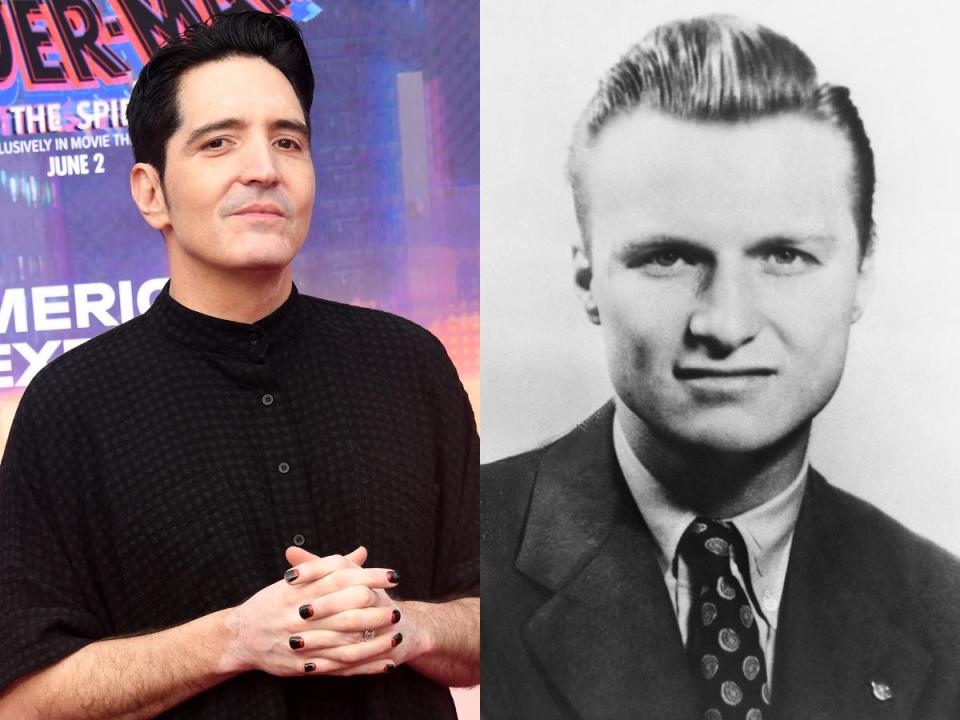
The staff executive director of Congress's Joint Atomic Energy Committee accused Oppenheimer of being an "agent of the Soviet Union" with a Communist mistress in a letter to then director of the FBI, J. Edgar Hoover.
The letter, which contained 21 reasons that suspected Oppenheimer was a Soviet spy, led to 1954's Oppenheimer security hearing.
Robert Downey Jr. plays Lewis Strauss, the chairman of the Atomic Energy Commission who was instrumental in Oppenheimer's downfall.
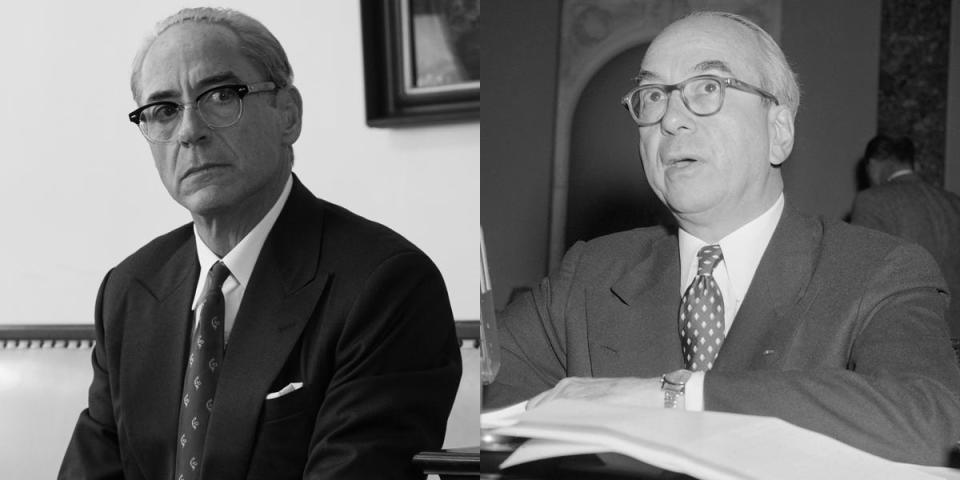
According to the Atomic Heritage Foundation, Strauss believed Oppenheimer had communist ties and described him as "a threat to American security."
Strauss' beliefs led to a four-week security hearing in 1954 against Oppenheimer which resulted in the scientist losing his Q clearance, a high-level security clearance granted by the US Department of Energy.
Many believed Strauss had a personal grudge and "vendetta" against Oppenheimer. The two previously clashed about developing the hydrogen bomb, which President Truman gave Strauss the green light for. Oppenheimer advised against the development and publicly embarrassed Strauss over his opinion.
Dane DeHaan plays Kenneth Nichols, an antagonist to Oppenheimer who worked on the Manhattan Project as a lieutenant to Groves.
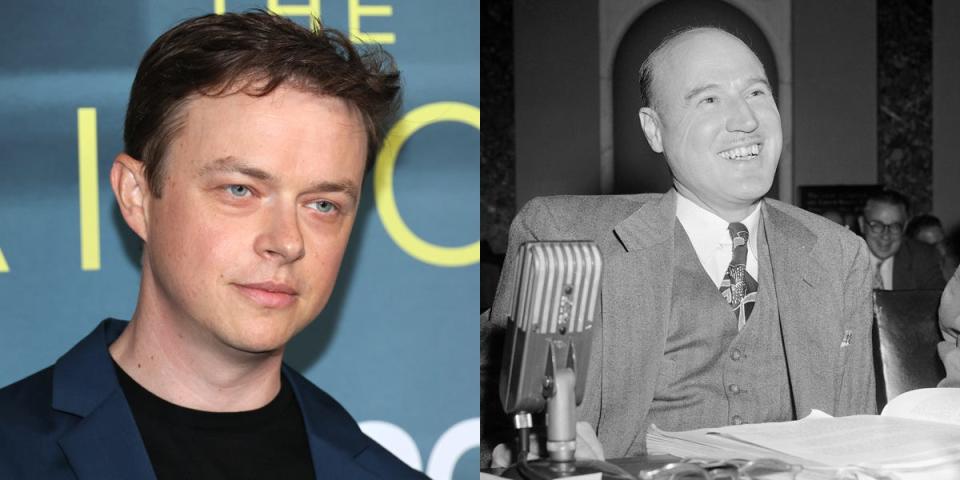
Nichols joined the Manhattan Project as a Deputy District Engineer in 1942 and was eventually awarded a Distinguished Service Medal for his contribution.
In "Oppenheimer," DeHaan plays Groves' right-hand man and is depicted as an antagonist to Oppenheimer.
In real life, Nichols recommended Oppenheimer's security clearance to not be reinstated and claimed he was "a Communist in every sense except that he did not carry a party card." His recommendation was key in revoking Oppenheimer's clearance.
Tony Goldwyn plays Gordon Gray.
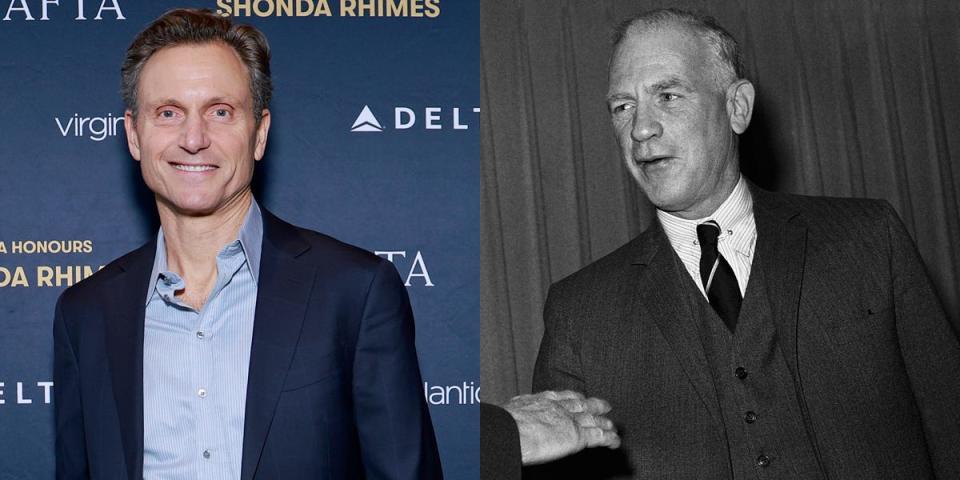
Gray led a committee, the Gray Board, that recommended stripping Oppenheimer of his security clearance.
Despite three members calling Oppenheimer a "loyal citizen," Gray and the majority of the board recommended his clearance be revoked.
Jason Clarke plays the attorney Roger Robb.
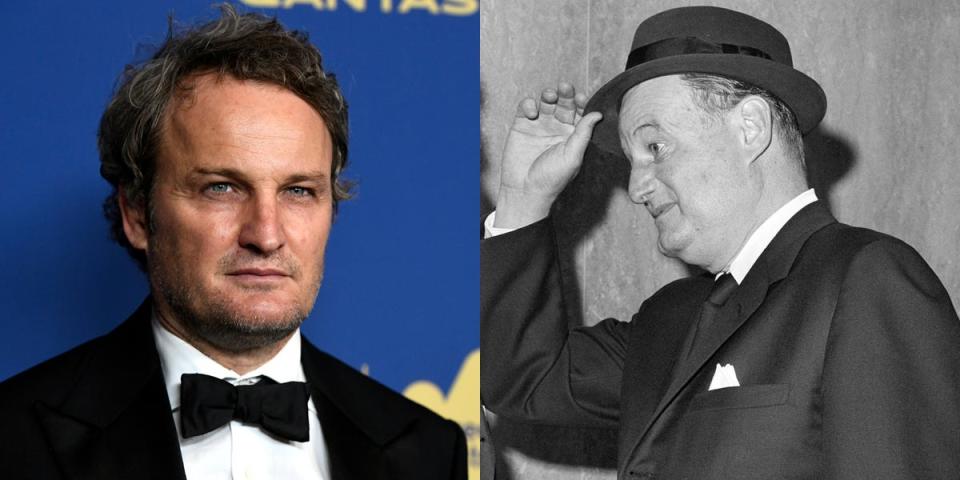
Robb was selected by Strauss to act as special counsel during Oppenheimer's security-clearance hearing.
The Atomic Heritage Foundation says that Robb had a "bitterness" toward Oppenheimer.
Rami Malek plays David Hill, who appears to be based on an associate physicist who contributed to the Manhattan Project.
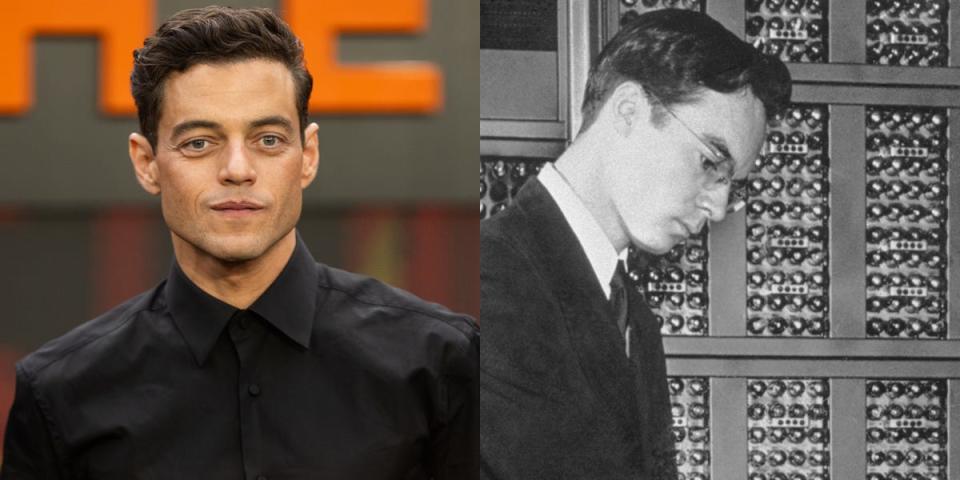
Hill worked at the Met Lab at the University of Chicago during the Manhattan Project.
The movie depicts Hill as a crucial figure in the film's central feud between Oppenheimer and Strauss. In reality, Hill didn't play such an instrumental role.
Oppenheimer wasn't cleared of the Gray Board's "flawed" investigation until 2022.
Florence Pugh plays Jean Tatlock, a psychologist and a member of the Communist Party who had a previous relationship with Oppenheimer.

Tatlock and Oppenheimer began seeing one another after meeting at a house party in 1936. The psychologist turned down two proposals from Oppenheimer before he eventually married Katherine Puening.
Oppenheimer saw Tatlock again during his work on the Manhattan Project in 1943 and stayed at her apartment.
Tatlock reportedly died by suicide in 1944, though some suspected foul play. Robb brought up Oppenheimer's alleged affair with the Communist Party member during his security clearance hearing 10 years later.
Correction: July 21, 2023 — An earlier version of this story misspelled the name of the man who was the head of the US Office of Scientific Research and Development during World War II. It was Vannevar Bush.
Read the original article on Insider

